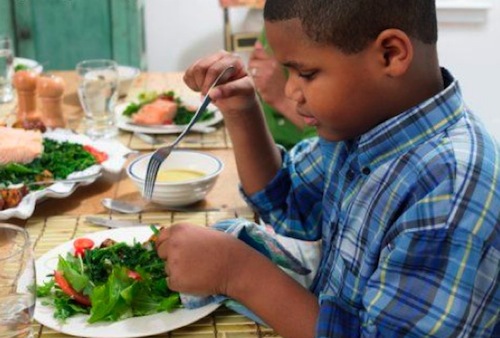
Over the past two decades, reports of food allergies have nearly doubled among black children, a new study reveals.
Although childhood food allergies are on the rise overall, the spike in these allergies among black children is alarming, according to researchers from Johns Hopkins University in Baltimore. It remains unclear if this sharp increase is the result of better detection or some trigger in the environment.
The study, published in the March issue of Annals of Allergy, Asthma and Immunology, involved more than 450,000 children. The researchers found that between 1988 and 2011, food allergies increased among black children at a rate of 2.1 percent every 10 years. Meanwhile, food allergies increased at a rate of just 1.2 percent each decade among Hispanics and 1 percent every 10 years among white children, the findings showed.
“Our research found a striking food allergy trend that needs to be further evaluated to discover the cause,” study author Dr. Corinne Keet, an assistant professor of pediatrics at Johns Hopkins, said in a journal news release.
“Although African Americans generally have higher levels of IgE — the antibody the immune system creates more of when one has an allergy — it is only recently that they have reported food allergy more frequently than white children,” Keet explained.
“It is important to note this increase was in self-reported allergy,” added Keet. “Many of these children did not receive a proper food allergy diagnosis from an allergist. Other conditions such as food intolerance can often be mistaken for an allergy, because not all symptoms associated with foods are caused by food allergy.”
A separate study also published in the same journal pointed out that many doctors who specialize in allergies can predict whether a child will be more likely to outgrow their food allergy or if it will remain a lifelong condition.
“Those allergic to milk, egg, soy and wheat are more likely to tolerate these allergens over time than those allergic to peanuts and tree nuts,” study author Dr. Wesley Burks, an allergist and American College of Allergy, Asthma and Immunology fellow, said in the news release. “No single test alone can predict eventual food tolerance, but when patients are under the regular care of a board-certified allergist they can be re-evaluated and tested in different ways.”
Source: web md


 Doctors say a potential treatment for peanut allergy has transformed the lives of children taking part in a large clinical trial.
Doctors say a potential treatment for peanut allergy has transformed the lives of children taking part in a large clinical trial.